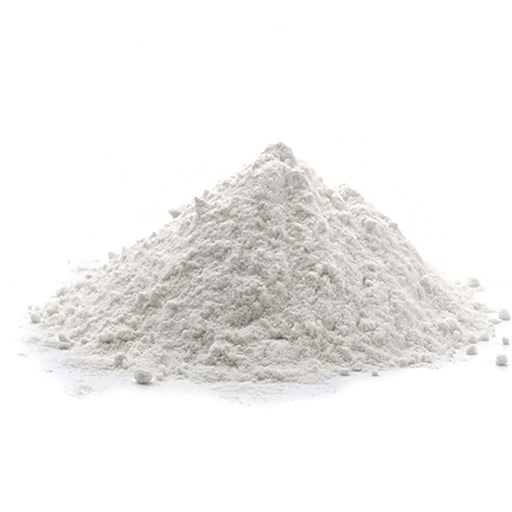Creatine Health Benefits and Side Effects
Written by: Christopher Karam | ✔️ Medically Reviewed by: Dr. Riad M., M.D - G.P and Micheal B., M.D | Last Updated: 2020 March 22
Table of Contents
- Break Down
- Health Benefits
- Side Effects
- Nutrition Facts
- Recommendation
- Frequently Asked Questions (FAQ)
- Related Articles
- Sources
- Buy Creatine Now (US)
Break down and Background
Break down
Creatine supplements are found in many forms but we'll be measuring the 2 most popular versions, Monohydrate and Hydrochloride (HCL).
Creatine, one of the most widely used natural supplement in almost every major competitive sport. Offering major health benefits for a cheap average price point. It's a completely natural substance or it can be made synthetically.
Creatine is not only safe, but it's also commonly used option for improving exercise performance, increasing muscle mass and strength in professional athletes and even the common individual.
Creatine use is allowed by the International Olympic Committee, National Collegiate Athletic Association (NCAA), and all professional sports (NBA, NHL, NBL, Etc).
There is some evidence supporting the use of creatine in improving the athletic performance and strength output of young, healthy individuals who are below 18 years old during high-intensity activities like sprinting and weight training.
Because of this, Creatine is often used as a dietary supplement to improve muscle strength and athletic performance. In North America, the majority of nutrition supplements total to $56.2 billion as a market size, expecting to reach around $280 billion by 2024, ~12% of which contain creatine supplements.
In addition to improving athletic performance and muscle strength, creatine is taken by mouth for creatine deficiency syndromes that affect the brain, aging, bone density, chronic obstructive pulmonary disease (COPD), congestive heart failure (CHF), depression, diabetes, muscle-related diseases, recovery from surgeries, and many more issues.
Creatine's also taken by mouth to slow the worsening of amyotrophic lateral sclerosis (ALS, Lou Gehrig's disease), osteoarthritis, rheumatoid arthritis, McArdle's disease, and for various muscular dystrophies.
Health Benefits
The benefits of creatine have been researched for a long time and are unmatched. It has positive benefits that affect Strength, Power output, Sprints, Muscle endurance, Fatigue resistance, increased Muscle mass, improved Recovery, and Brain performance.
Creatine is a popular and effective supplement for adding muscle mass. Creatine supplements increase your phosphocreatine stores, allowing you to produce more ATP energy to fuel your muscles during high-intensity.
What’s more, is that creatine supplements can increase the water content of your muscles. This is known as cell volumization which can quickly increase muscle size, giving off a more toned look.
Creatine also raises a growth factor hormone called IGF-1 , which promotes increased muscle mass. It also boosts the formation of proteins that create new muscle fibers. Changes numerous pathways in your cells that lead to new muscle growth.
Creatine helps muscle cells produce more energy by increasing your muscles' phosphocreatine stores. Phosphocreatine helps with the formation of new ATP, a key molecule in your muscles your cells use for energy and all basic functions of the human body. During exercise, ATP is broken down to produce energy.
This is the primary mechanism behind creatine's performance-enhancing effects during exercise. The rate of ATP resynthesis limits your ability to perform at your maximum intensity — you use ATP faster than you reproduce it.
Additionally, research shows that creatine decreases levels of myostatin, a molecule responsible for stunting muscle growth. The reduction in myostatin can help you build muscle since this is what sets your "genetic limit" when bodybuilding or focusing on activities that promote muscle growth.
Side Effects and Detriments
Creatine is one of the safest supplements you can consume, with virtually no downsides or side effects when taken properly there are still concerns around taking creatine.
The form of Creatine which has a bloating side effect is Creatine Monohydrate. This form when digested asks for water to be flushed into the digestive tract, since Creatine's water solubility is very low it demands quite a bit of water depending on the cycle and stage you're at while taking the supplement.
Creatine Hydrochloride (HCL) removes that side effect entirely. Making it much more water soluble and avoids bloating altogether.
Despite all the benefits, some skeptics avoid Creatine supplements entirely because they think it's bad for our health. Although the International Society Of Sports Nutrition regards Creatine as being extremely safe and one of the most effective supplements available.
There are still some precautions, no matter the version of Creatine supplements you chose to add to your diet. Avoid going over the recommended amount unless you know what you're doing, or a professional.
Creatine is processed in the Liver before entering the bloodstream and into our muscles. Too much Creatine could impact your liver if you couple it with other heavy tasks throughout the day.
Following the recommended amounts is your best bet. To even think of seeing any issues immerge you'd have to consume at least 3x the recommended amount all while having little muscle mass.
Rating and Recommendation
Highly Recommended
We highly recommend you include Creating Hydrochloride (HCL) Supplements in your daily diet. The numerous studies over the years decisively conclude the benefits Creatine has to offer.
With no side effects or detriments. Creatine Hydrochloride Supplements are a must have for everyone.
If you chose to take Creatine Monohydrate instead, the dosages are as follows:
Creatine Hydrochloride: ~4g's per gym day (2 grams before a workout, 2 grams post workout) and 4 grams for off days.
Creatine Monohydrate: (Bodyweight in Pounds) x 0.15 = grams of creatine monohydrate to ingest, or (Bodyweight in Kilograms) * 0.33 = grams of creatine monohydrate to ingest.
Although these formulas would appear to overestimate needs, bear in mind that one gram of creatine monohydrate is only 88% creatine. The overage takes this into account.
Sources
1. Int J Sport Nutr Exerc Metab. (2003 Jun 02) Effect of creatine supplementation on body composition and performance: a meta-analysis.2. Med Sci Sports Exerc. (2001 Feb 02) Creatine supplementation and health variables: a retrospective study.
3. Acta Physiol Scand. (1995 Jul 03) Skeletal muscle metabolism during short duration high-intensity exercise: influence of creatine supplementation.
4. Acta Physiol Scand. (2002 Jan 01) Differential response of muscle phosphocreatine to creatine supplementation in young and old subjects.
5. J Int Soc Sports Nutr. (2007 Aug 30) International Society of Sports Nutrition position stand: creatine supplementation and exercise
6. Mol Cell Biochem. (2003 Feb 02) Effects of creatine supplementation on performance and training adaptations.

Creatine Nutrition Facts
Serving Size 100 g (about 3.5 Oz or 0.44 Cups)
| Amount Per Serving | ||
|---|---|---|
| Calories 0 | Calories from Fat 0 | |
| % Daily Value* | ||
| Total Fat 0 g | 0 % | |
| Saturated Fat 0 g | 0 % | |
| Polyuns. fat 0 g | ||
| Monouns. fat 0 g | ||
| Trans Fat 0 g | ||
| Cholesterol 0 mg | 0 % | |
| Sodium 0 mg | 0 % | |
| Total Carbohydrate 0 g | 0 % | |
| Dietary Fiber 0 g | 0 % | |
| Sugars 0 g | ||
| Protein 0 g | ||
| Vitamin A 0 % | Vitamin C 0 % | |
| Vitamin E 0 % | Vitamin K 0 % | |
| Vitamin D 0 % | Vitamin B6 0 % | |
| Calcium 0 % | Iron 0 % | |
| Magnesium 0 % | Cobalamin 0 % | |
Calories per gram:
Fat: 9 | Carbohydrate: 4 | Protein: 4
Source: USDA's Nutrient Database
